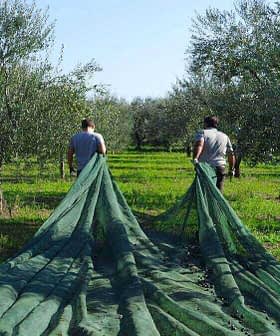France has announced a ban on the import of vegetables and plants from the Apulia (Puglia) region of South Italy over fears that the Xylella fastidiosa bacterium may spread to France.
The bacterium has infected tens of thousands of acres of olive groves in the Salento region of Apulia, prompting the European Commission to recommend chopping down up to 11 million olive trees to control the outbreak and stop it from spreading to other parts of Europe.
A press release by the French ministry of agriculture published on April 3, 2015 announced the introduction of a ban on the import into France of 102 different vegetables and plants which are susceptible to Xyella fastidiosa from regions which have been infected by the bacterium, including Apulia. The decision was taken, the ministry said, in order to avoid the potentially serious economic consequences of a possible spread of the bacterium to France.
Spread by insects, Xylella fastidiosa can attack a variety of different plant species like coffee, grapes, and citrus and other fruit trees. There is no known effective way to eradicate the bacteria, other than destroying infected trees and plants to prevent its spread.
The French minister for agriculture, Stéphane Le Foll, has been calling for EU measures to be taken to control the outbreak since January 16, 2015. These measures are still being discussed by experts from the 28 EU member states but a consensus is yet to be reached. In the meantime, the French agriculture ministry has decided to introduce measures on the national level by calling for the ban.
Coldiretti (Confederazione Nazionale Coltivatori Diretti), Italy’s national farmers’ organization, has responded to the French ban by calling it “disproportionate and disrespectful” and accusing France of starting a trade war.








